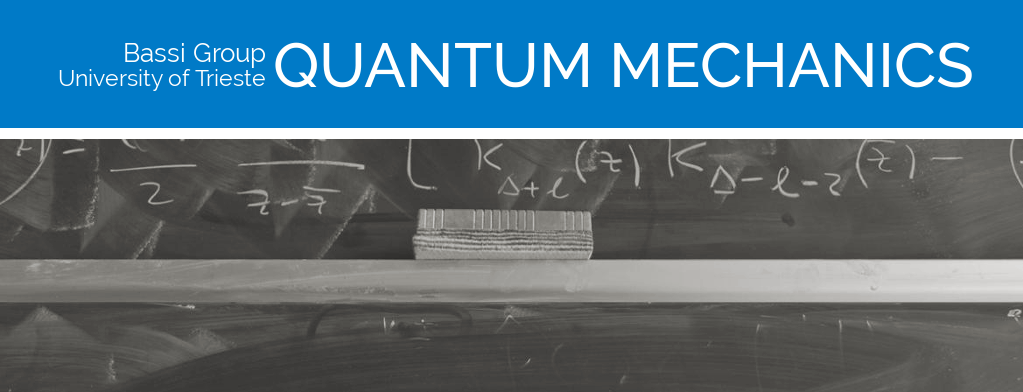
We work in quantum mechanics and its foundations: the measurement problem, the meaning of the wave function, entaglement and nonlocality, the quantum-to-classical transition, the relation between quantum theory and relativity/gravity.
Latest News
Collapse and Cosmology, latest paper on JHEP
Noisy gates for simulating quantum computers, our team on PRR
Quantum computation research on PRL
Frontiers of Matter Wave Optics School and Conference
Latest ArXiv preprints
- Squeezing below the ground state of motion of a continuously monitored
levitating nanoparticleby Qiongyuan Wu on March 27, 2024 at 5:34 pm
Squeezing is a crucial resource for quantum information processing and quantum sensing. In levitated nanomechanics, squeezed states of motion can be generated via temporal control of the trapping […]
- Open system dynamics from fundamental Lagrangianby Anirudh Gundhi on March 21, 2024 at 6:00 pm
Lagrangians can differ by a total derivative without altering the equations of motion, thus encoding the same physics. This is in general true both classically and quantum mechanically. We show, […]
- Equivariant Variational Quantum Eigensolver to detect Phase Transitions
through Energy Level Crossingsby Giulio Crognaletti on March 11, 2024 at 6:51 pm
Level spectroscopy stands as a powerful method for identifying the transition point that delineates distinct quantum phases. Since each quantum phase exhibits a characteristic sequence of excited […]
- Non-interferometric rotational test of the Continuous Spontaneous
Localisation model: enhancement of the collapse noise through shape
optimisationby Davide Giordano Ario Altamura on February 20, 2024 at 2:52 pm
The Continuous Spontaneous Localisation (CSL) model is the most studied among collapse models, which describes the breakdown of the superposition principle for macroscopic systems. Here, we derive an […]
- Spontaneous collapse models lead to the emergence of classicality of the
Universeby José Luis Gaona-Reyes on January 16, 2024 at 10:46 am
Assuming that Quantum Mechanics is universal and that it can be applied over all scales, then the Universe is allowed to be in a quantum superposition of states, where each of them can correspond to […]